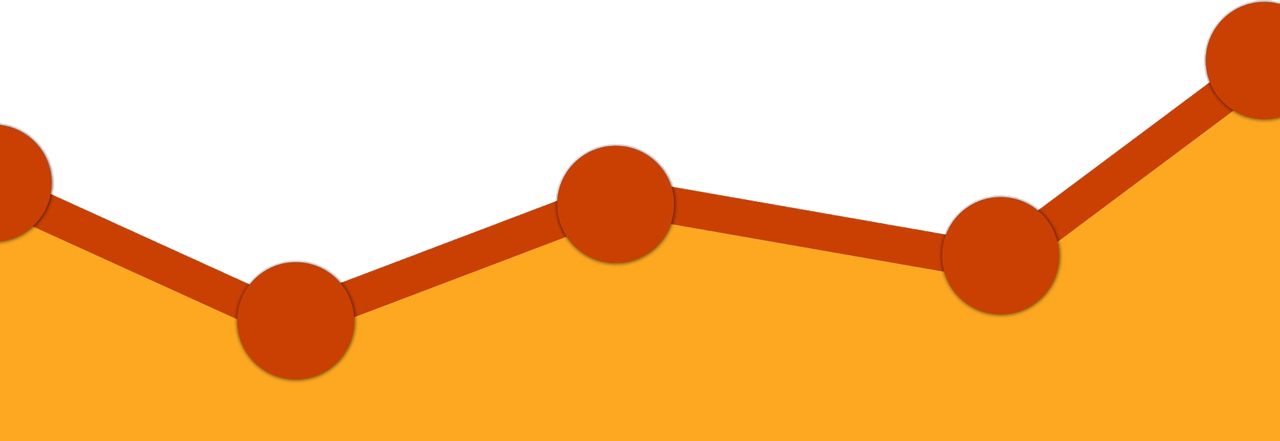The very mention of the two words ‘Google Analytics’ can understandably strike fear into the hearts of many online business owners. Indeed, if you have merely heard of Google Analytics but never used it, the very name might conjure up imagery of dweebs gazing constantly at screens, sifting through reams of numbers that really don’t mean much to the average person.
What’s more, because analytics isn’t exactly the kind of thing you’re likely to talk about at the bus stop each morning – unlike, say, the weather or how the game went last night – you could be forgiven for thinking it’s something highly specialised, nerdy and insignificant.
But the average person not easily understanding web analytics doesn’t mean it’s just a small aspect of your online presence. The things that you can learn about your website through analytics, in fact, make it a field with massive implications for your brand’s success or failure on the web.

What is Google Analytics?
In short, it’s a web analytics tool that Google offers for free to enable online business owners like you to analyse their website traffic. It’s now used by more than 50 million websites around the globe, so as you can imagine, it’s valued as a tool that brings real insights for site owners.
To give you a sense of just how much insight Google Analytics could bring you, it’s worth thinking for a moment about all of those campaigns that you run from time to time to promote your products or services to your target audience. We mean the lot – search engine optimisation (SEO), pay-per-click (PPC), social media advertising and whatever else your brand does to spread the word about itself to the people who matter.
Imagine almost any marketing campaign that your firm runs, and you’ll realise that nearly all of them are likely to entail the intrigued target customer visiting your website at some point. They might make their first contact with your site at an early stage of their journey to becoming a paying customer, or it may happen later… but regardless, it’ll almost certainly occur.
All of this makes your website the central hub of your brand’s digital marketing efforts. So in summary, the right free analytics tool – such as Google Analytics – could tell you a huge amount about how effective your company’s digital marketing campaigns are right now.
So, how does Google Analytics work?
At its heart, the principle behind how Google Analytics works can actually seem extremely simple: you sign up to the service online, providing some basic details about the site that you wish to monitor. You’re then given a tracking code to paste onto your pages, to enable Google to determine when your site has been visited, and to collect all of the information that’ll help you to optimise your campaigns.
Finally, it’s just a case of waiting for a few hours and then checking Google Analytics for the first statistics to come through, telling you seemingly everything that you could possibly wish to know about who is visiting your site and how. What could be more straightforward than that?
Alas, Google Analytics is somewhat more complicated than that – its fearsome reputation is no accident, after all. We’ll get into all of that in a moment.
Even at its most basic levels, though, Google Analytics can undoubtedly bring site owners some seriously useful information. Yes, it’s great that you’re running a campaign such as an SEO or PPC campaign, but how will you then know whether it has been successful?
Sure, there are various other means of discovering what results you’re getting out of your campaigns. In the case of PPC, for example, there’s the Google Ads platform, which does give you details on how your paid advertising campaigns are doing.
However, it is through Google Analytics that you will be able to discover especially in-depth information that will truly enable you to refine your SEO and PPC efforts.
What does Google Analytics allow you to find out?

If you’ve ever wanted to measure your website’s ‘bounce rate’ – that is, the percentage of visitors to your site who then leave the site after viewing just one page – so that you can determine which of your landing pages are the most effective, or for that matter, how much time users spend on your site as a gauge of their level of engagement, Google Analytics can be an indispensable tool.
In fact, the tracking code that Google Analytics incorporates into your site doesn’t just record what users do while they’re on your site, but also notes attributes of theirs such as their age, gender and interests. All of this information is then sent to the Google Analytics (GA) server as soon as the given visitor leaves your site.
With data being collected from visitors in relation to the actions that the users take, each individual visit, each individual page visited and such ‘events’ as video views and button clicks, you really can drill down to the finest details about your target audiences with Google Analytics.
So, whether you learn that your brand mainly appeals to people in their late 20s and early 30s living in major cities, or there are particular pages of your site that see a notoriously high proportion of visitors leave your site altogether, there’s just so much that Google Analytics can uncover.
We’ve only done some light paddling in the shallowest corners of the Google Analytics pool in this article. If, then, you’d like to delve deeper, it’s well worth getting in touch with our experts here at Success Local. Call us now on 01788 288 800, and you’ll be well-placed to begin drawing upon the potential of this extremely powerful and insightful platform.
Posted in Marketing Mondays